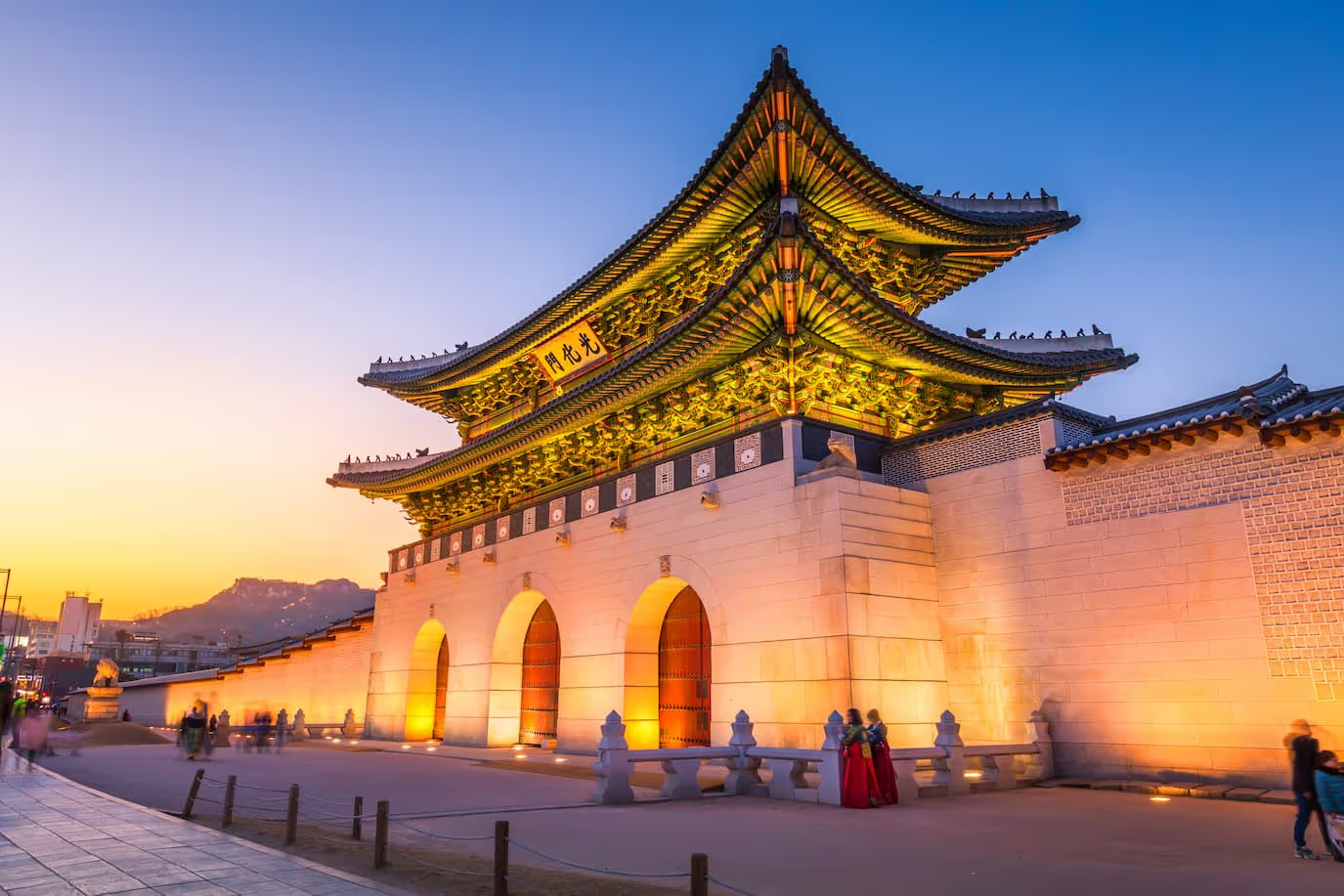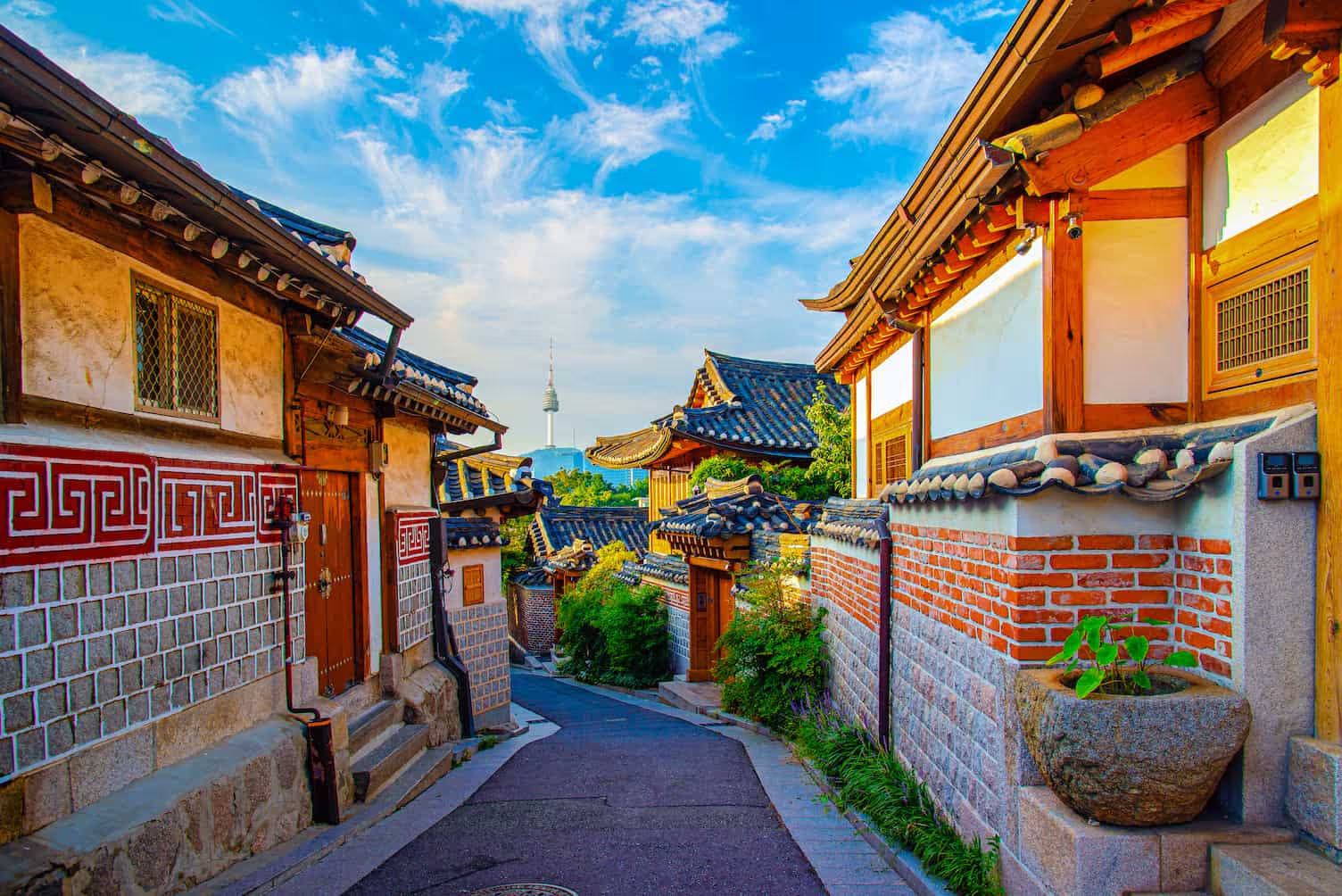South Korea, a vibrant nation located in East Asia, seamlessly combines ancient traditions with cutting-edge technology. Known for its dynamic cities, lush green countryside, and cultural exports like K-pop and Korean dramas, South Korea offers a unique lifestyle that attracts expats and digital nomads. The country boasts an efficient infrastructure, high-speed internet, and a thriving tech industry, making it ideal for remote workers.
Whether exploring Seoul's bustling streets or the serene temples of Gyeongju, South Korea captivates with its rich history, delicious cuisine, and modern conveniences. While the language barrier can be challenging, the nation’s commitment to innovation and global connectivity ensures a welcoming environment for those looking to work or settle.
Culture
South Korea’s culture is deeply rooted in Confucian principles that emphasize respect, hierarchy, and community. The nation is famous for its traditional hanbok attire, ceremonies like the tea ritual, and the globally celebrated Hallyu (Korean Wave), encompassing K-pop, films, and dramas. Key cultural events include Seollal (Lunar New Year) and Chuseok (harvest festival), when families gather to honor ancestors and celebrate seasonal changes.
South Korean cuisine, known for its bold flavors and communal dining, features staples like kimchi, bulgogi (marinated beef), and bibimbap (mixed rice). Street food markets serve popular dishes like tteokbokki (spicy rice cakes) and hotteok (sweet pancakes).
The people value education, innovation, and harmony, resulting in a society that balances tradition with rapid modernization.
Do’s and Don’ts
✅ Do bow slightly when greeting; it’s polite to use two hands when receiving or giving items.
✅ Do try Korean cuisine and learn basic dining etiquette, such as waiting for elders to start eating.
✅ Do familiarize yourself with honorifics in the Korean language.
❌ Don’t speak loudly or disrupt the harmony in public spaces.
❌ Don’t use one hand when passing objects, especially to elders.
❌ Don’t point with your index finger, as it is considered impolite.
Government
South Korea is a democratic republic with a strong centralized government. The President serves as the head of state, while the Prime Minister and cabinet oversee administrative functions. The country is divided into provinces, metropolitan cities, and autonomous regions, each with distinct local governance. South Korea's legal system is based on civil law and upholds freedom of expression and human rights.
Social media
South Korea is one of the most digitally connected nations globally, with social media playing a central role in daily life. Platforms such as KakaoTalk dominate communication, while Instagram and Facebook are widely used for social networking. YouTube serves as a primary source for entertainment, education, and K-pop content. TikTok has also gained traction, particularly among younger demographics.
- KakaoTalk: The most popular messaging app.
- Instagram: Frequently used for lifestyle and fashion updates.
- Facebook: A platform for older demographics and social communities.
- YouTube: Key for entertainment and informational content.
- TikTok: Rapidly growing in popularity.
National sport
Taekwondo, South Korea’s national martial art, is a source of immense pride and a UNESCO-recognized cultural heritage. Practiced worldwide, it embodies the nation’s values of discipline and perseverance.
Baseball is also a beloved sport, with professional leagues drawing massive fan support. Additionally, eSports and online gaming are uniquely celebrated in South Korea, solidifying its status as a global leader in competitive gaming culture.

.png)

.svg)














.avif)









.svg)






.svg)
.svg)
.svg)
